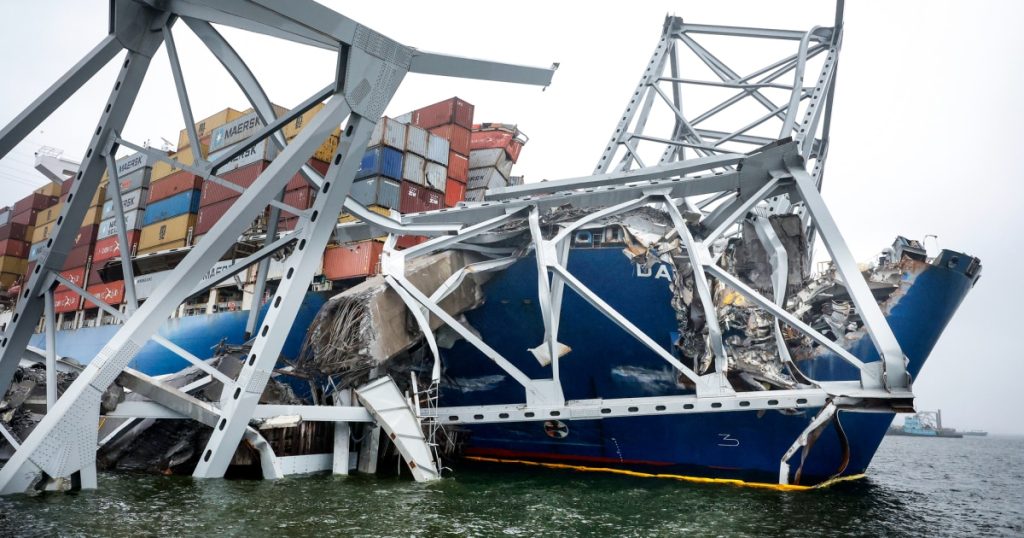Seven days before the collision of a container ship with a Baltimore bridge, the ship received a large load of fuel at a New Jersey berth. The company that delivered the fuel, Centerline Logistics, has confirmed that testing at the time showed the oil was safe to use. The load consisted of two types of oil and totaled more than 400,000 gallons. The ship, named Dali, was chartered by Maersk. Dali’s movements through New York Harbor are being scrutinized as part of the investigation into the collision that triggered the collapse of the Francis Scott Key Bridge, resulting in the deaths of six road workers.
Contaminated fuel is believed to cause power and propulsion failures on ships around the world, leading investigators to prioritize testing the Dali’s fuel for contaminants. While fuel contamination is a common issue, experts caution that other factors could also be responsible for power loss. It is uncertain if the Dali was using the fuel from Centerline at the time of the collision, as the ship had received fuel from other sources in February and March. Despite rigorous testing by Centerline, it is possible that not all contaminants were detected. The standard tests do not always catch every potential issue.
Fuel samples were shared with experts in marine engineering and operations, who indicated that the reports showed the fuel was clean and within acceptable levels for impurities. Despite fuel system robustness on ships, contaminated fuel has disrupted engine operations in previous cases. Centerline offered to provide fuel samples to the U.S. Coast Guard on the day of the crash, but has not received any feedback. The ongoing investigation led by a group of agencies includes testing of the Dali’s fuel for contaminants, as confirmed by the National Transportation Safety Board (NTSB) Chair Jennifer Homendy shortly after the incident.
The NTSB has not ruled out any facts regarding the investigation and is conducting a thorough review to determine the cause of the collision. Maersk, which chartered the Dali, is closely following the investigations conducted by authorities and the vessel operator, while also conducting its own investigation. Experts are eager to learn the results of the NTSB’s probe into the Dali’s systems failure, as multiple events often contribute to such incidents. While fuel testing is crucial in determining potential causes, it is only one aspect of the broader investigation into the collision that claimed the lives of six workers and damaged the Francis Scott Key Bridge in Baltimore.


